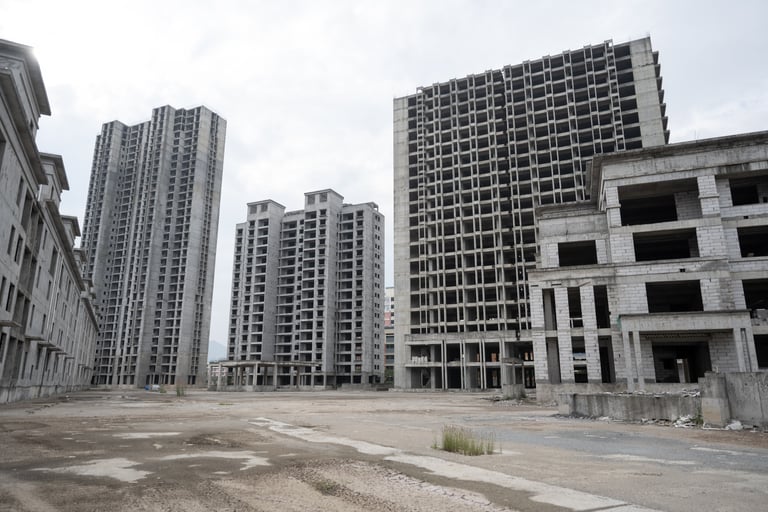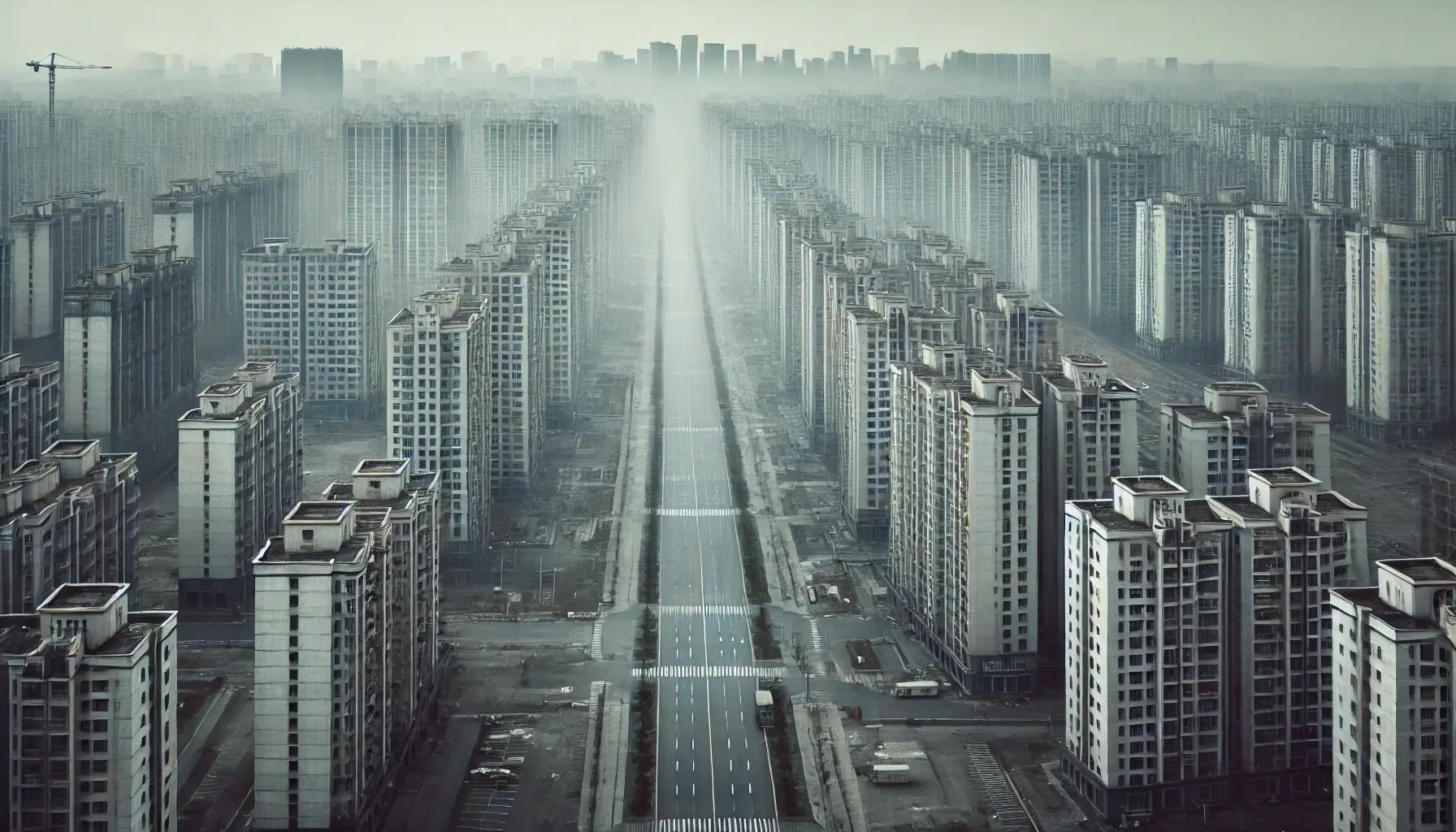The gold rush gone wrong China's abandoned ghost towns

By Cape Capital
31.10.2024

Haunting skeletons bear witness to genuine 'gold rush' prosperity amid political corruption, and, for some, catastrophic financial decisions.
According to Zak Dychtwald, ‘ghost cities’ symbolise China’s property crisis. They are a symptom of a once inefficient system where people relied on property prospecting to get rich. It all began in the 1990s when the country’s per capita GDP was around $300, and people weren't buying iPhones or McDonald's, never mind property. Then, for the next three decades, there was unprecedented growth. "China was in a world of its own, where real estate became the favoured asset class," explains the CEO of Young China Global Group. "Whereas stock markets in the USA reward patient investors with average long-term returns of 10 percent, it was real estate that saw that kind of return in China. Real estate prospecting was the gold rush for ambitious people."

Virtual world travel
Enthused by the boom, developers attempted to make their properties stand out by incorporating a replica of a foreign landmark. The virtual world travel idea was based on the Chinese curiosity about how others live in countries such as America. "Most Chinese people don't have a passport, many Chinese cities look the same, and there are few foreigners, so if you're trying to experience a different way of life, you don't have many options. Developers created a fake Eiffel Tower, or a Midwestern American suburb, such as the project north of Shanghai,’ says Zak, noting that while such a neighbourhood would be ridiculed in Europe, it's seen as cool here. "China embraces curiosity. Not everything is second-, triple- or quadruple-guessed as in the US and Western Europe. There's a certain amount of naivete. It's also an exploration of the opportunities that money can bring. It can lead to conspicuous consumption and consumer design outside of what would be deemed appropriate or acceptable in more advanced capitalistic economies."
Economic malaise
However, Zak recalls how property growth was becoming increasingly tainted by corruption. He describes China's economic regime as an irrigation system, with naturally fertile soil in some places and government stimulus in more barren areas. The need for development, along with greed, led to dishonesty. "Local governments became wealthy by selling land to unscrupulous property developers," explains Zak. "For a government development needing three different bidders, some people would create three separate companies to ensure winning the contracts (each averaging $300,000). A developer might rely on rumours of a factory and government stimulus in the north of Chengdu. Then it wouldn’t happen because government officials changed roles or there was an anti-corruption crackdown. Suddenly, there was no reason for people to move to empty cities that could house 100,000 residents."
Zak views ghost cities as a symptom of corruption and fund misallocation – a leftover from the last decade. But what might encourage people to relocate and inhabit them now? The answer, he believes, is twofold: China’s current economic downturn which is resulting in many losing their jobs and the relaxation of the hukou system. "Hukou is based on where you're born, which affects schooling and health care," he explains. "It limits people's ability to migrate around the country and makes it challenging to attract educated, capable labour in factory towns like Shenzhen. If you're not on a local hukou, your kids can only go to local schools if you buy property, which is increasingly unaffordable for most. Relaxing the system’s rules is the government's attempt to lessen the pain of a downturn."
Reverse Migration – From 1st Tier Cities, Down
Another change, he says, is a general lowering of expectations about living in a first-tier city such as Beijing or Shanghai. "Previously, even with a smaller apartment, people would make money," he says. "Now, when more money isn't promised, they ask what makes for a good life, not just a more financially successful one. So, these ghost towns are being re-examined as a fine place to weather the economic storm." China's robust delivery and logistics system also means that their relative remote locations may not be much of a deterrent. "As remote work becomes available, people looking for a better life are considering other options. Those interested in a good deal may move to these cities if apartments get sold for 10 or 20 cents on the dollar,” he continues. "Xi Jinping has explicitly said that housing is for living, not investing. These ghost towns may get a second life; a 10 percent increase in occupancy across all the ghost towns in China might be 10 million people. China is the land of big numbers."

Ghost cities are the result of an extreme real estate moment – and that moment has passed. "They are relics of the wild-west era of Chinese prospecting in the property markets," he says, adding that many in China wish they could return to that time of abundance. Now, growth has stopped. "This generation has never lived in an economy that was not growing nearly double digits. They've never lived through major rounds of layoffs. This downturn is the equivalent of a financial crisis in terms of defining their worldview." A leading indicator of youth happiness is the ratio of housing costs to average income, and it is more distorted in China and its major cities than anywhere else. "That people are even entertaining living in these ghost towns is, in many ways, a significant symbol of the country's economic malaise," he concludes. "Like an abandoned gold rush, these ghost cities were attempts at a property gamble that never paid off. It was financial prospecting gone wrong. Now, the skeletons of these decisions stand erect for everyone to see."